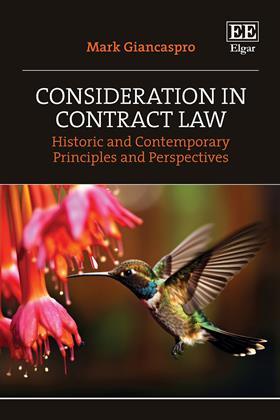Consideration in Contract Law: Historic and Contemporary Principles and Perspectives
Mark Giancaspro
£100, Edward Elgar
★★★★★
On day one, newly minted law students will probably be dropped straight into contract law. Twenty-odd years on, many – including myself - will probably mainly recall the ‘mere puff’ of carbolic smoke balls, something about promissory estoppel over some high trees, and whether chocolate wrappers provide good consideration. That remains the limit of my knowledge of consideration – the doctrine that alchemically transforms base metals of mere promises into the justiciable gold of legally enforceable contracts.
Far better versed in consideration, Mark Giancaspro has produced a gem of a book. The subject matter could be dry, but he handles it well, drawing on examples from history and popular culture. The list of legal works that reference Lord Denning, John Grisham, Hannibal Lecter and The Simpsons (pictured) illustrates his points. The text flows along in a conversational and readable style.

The book begins by tracing the history of consideration, from the Roman doctrine of causa promissionis, through the historical common law writs of debt and assumpsit, and the development of the modern doctrine in the crucible of the economically liberal 18th and 19th centuries.

The second part assesses the key elements of valid consideration – the requirement that it must be ‘valuable’ but need not be ‘adequate’ – and the Stilk v Myrick principle that performance of an existing legal duty is not, in general, valid consideration.
The second section concludes with some metaphysics, considering whether courts
could find value for the purposes of consideration in ethereal ‘goods’ such as love, ‘lucky charms’ and cryptocurrency.
The book concludes by analysing how consideration applies in contract renegotiations and how it interacts with other principles for variation, such as waivers, estoppels, and the controversial Williams v Roffey Bros principle that where a ‘practical benefit’ accrues to the promise, an existing legal duty may be used as consideration – a principle that has prompted substantial judicial and academic debate.
Consideration in Contract Law is an unexpected pleasure, written by someone who clearly knows the subject. It is a mix of legal history, theory and practical application, presented in accessible and readable prose. Commercial lawyers and academics in related fields may find particular interest, but even non-specialists will find this worth their time.
James E Hurford is a solicitor at the Government Legal Department, London































No comments yet